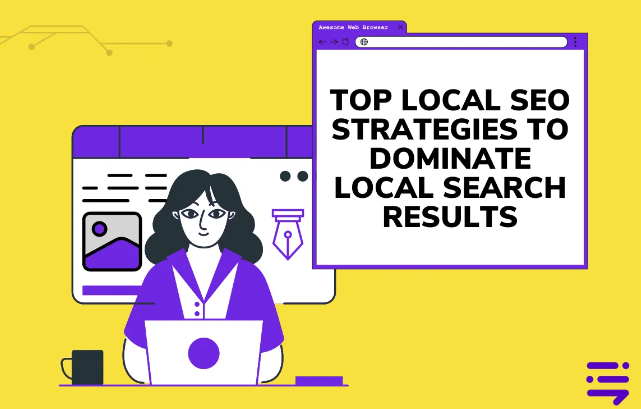Local SEO is essential for businesses aiming to attract customers in their geographic area. By optimizing your online presence, you can ensure that your business appears at the top of search results when potential customers look for services or products in your city. Here are the most effective local SEO strategies to help your business dominate the local search results.
Table of contents [Show] [Hide]
1. Optimize Your Google My Business Profile
Creating and optimizing your Google My Business (GMB) profile is the cornerstone of local SEO. It’s crucial to keep your GMB profile up to date with accurate business information.
Key Steps:
- Claim Your Business: If you haven’t already, claim your business on Google My Business.
- Complete All Information: Fill out all relevant fields, including business name, address, phone number, website, hours of operation, and categories.
- Use High-Quality Images: Upload professional photos of your business, products, and services.
- Encourage Reviews: Ask satisfied customers to leave positive reviews and respond to them promptly.
2. Leverage Local Keywords
Incorporate local keywords into your website content to signal to search engines that your business is relevant to local searches.
Strategies:
- Local Keyword Research: Use tools like Google Keyword Planner or Ahrefs to find keywords with local intent.
- Optimize Meta Tags: Include local keywords in your title tags, meta descriptions, and headers.
- Create Localized Content: Write blog posts and articles about local events, news, or activities relevant to your business.
3. Build Local Citations
Local citations are mentions of your business on other websites, including directories, social media platforms, and review sites.
Actions:
- Submit to Directories: List your business on popular local directories such as Yelp, Yellow Pages, and TripAdvisor.
- Ensure Consistency: Make sure your business information is consistent across all listings.
- Use Data Aggregators: Submit your business information to data aggregators like Infogroup and Neustar to distribute your details widely.
4. Get Backlinks from Local Sources
Backlinks from local websites signal to search engines that your business is trusted and relevant within your local community.
Methods:
- Partner with Local Businesses: Establish partnerships with other local businesses for mutual linking opportunities.
- Sponsor Local Events: Get involved in local events or charities and ensure they link back to your website.
- Guest Blogging: Write articles for local blogs and news sites to earn backlinks.
5. Optimize for Mobile
With the majority of local searches happening on mobile devices, ensuring your website is mobile-friendly is critical.
Tips:
- Responsive Design: Implement a responsive design that adjusts to any screen size.
- Fast Loading Speed: Optimize images and use caching to improve page load times.
- Easy Navigation: Ensure that users can easily navigate your site on a mobile device.
6. Create Local Content
Content that resonates with your local audience can drive engagement and improve your local SEO.
Ideas:
- Local News: Cover local news and events related to your industry.
- Case Studies and Success Stories: Share stories of local customers who have benefited from your products or services.
- Community Involvement: Highlight your involvement in the local community.
7. Use Schema Markup
Schema markup helps search engines understand your content better, leading to improved visibility in local search results.
Implementation:
- Local Business Schema: Add local business schema to your website to provide search engines with detailed information about your business.
- Event Schema: If you host events, use event schema to help them appear in search results.
- Review Schema: Implement review schema to showcase customer reviews in search results.
8. Encourage Customer Reviews
Positive reviews are a powerful signal to search engines and potential customers.
Steps:
- Ask for Reviews: Encourage satisfied customers to leave reviews on Google, Yelp, and other review sites.
- Respond to Reviews: Engage with customers by responding to their reviews, whether positive or negative.
- Showcase Reviews: Display reviews on your website to build trust and credibility.
9. Utilize Social Media
Social media can boost your local SEO efforts by increasing your online presence and engagement.
Actions:
- Engage with Followers: Regularly interact with your followers on platforms like Facebook, Instagram, and Twitter.
- Share Local Content: Post content relevant to your local area, such as events, news, and promotions.
- Link to Your Website: Include links to your website in your social media profiles and posts.
10. Monitor and Analyze Your Performance
Continuously monitoring and analyzing your local SEO efforts is essential to understand what works and what needs improvement.
Tools:
- Google Analytics: Use Google Analytics to track website traffic and user behavior.
- Google Search Console: Monitor your website’s performance in search results.
- Local SEO Tools: Utilize tools like Moz Local and BrightLocal to track your local search performance.
By implementing these comprehensive local SEO strategies, your business can significantly improve its visibility in local search results, attract more local customers, and ultimately dominate your city's search rankings.



